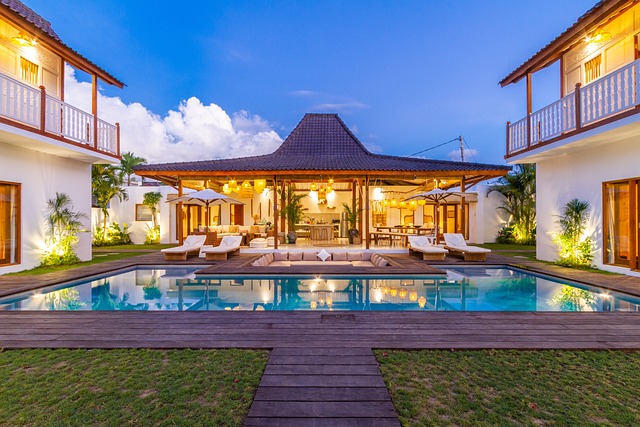2023's housing market in Singapore has expanded with the introduction of new Executive Condos (ECs) designed for middle-income families. These ECs are a collaboration between the government and private developers, offering leasehold tenure of 99 years as an alternative to public flats and private condominiums. To purchase an EC in 2023, buyers must not own any other property, adhere to income limits set by the Central Provident Fund (CPF), and satisfy a Minimum Occupation Period (MOP) of 5 years. The legal framework for ECs is distinct, with specific conditions affecting resale possibilities. ECs can be sold to Singaporeans or permanent residents after the MOP, unlike HDB flats which have stricter subletting rules. Prospective buyers must understand these guidelines and stay updated on regulatory changes, as they significantly impact the market value and long-term potential of new Executive Condos in 2023. With a range of financing options available under the Monetary Authority of Singapore's regulations, it's essential to evaluate mortgage packages carefully, considering the loan-to-value (LTV) limits, total debt servicing ratio (TDSR), and interest rate types before committing to an EC purchase.
Navigating the intricacies of housing in Singapore, particularly with a New Executive Condo (EC) in 2023, requires a keen understanding of its unique status and legal considerations. This article delves into the eligibility criteria for purchasing an EC, shedding light on the evolving framework that governs these properties. From grasping the legal aspects of financing to ensuring compliance with resale and subletting regulations, this comprehensive guide equips potential owners with the knowledge they need to make informed decisions in Singapore’s dynamic housing landscape.
- Understanding the Unique Status of New Executive Condos in Singapore's Housing Market (2023 Update)
- Eligibility Criteria for Purchasing a New Executive Condo in 2023
- The Legal Framework Governing Executive Condos: A Comprehensive Overview
- Financing Your New Executive Condo: Legal Aspects of Mortgages and Loans in 2023
- Ensuring Compliance and Navigating Resale and Subletting Rights for ECS Owners
Understanding the Unique Status of New Executive Condos in Singapore's Housing Market (2023 Update)

In 2023, the Singaporean housing market continues to evolve, with new Executive Condos (ECs) offering a unique segment for homeowners. Unlike traditional public or private housing, ECs are a hybrid of both, designed for couples and families who may not immediately qualify for a public flat but earn a stable income. These properties are developed through a 99-year leasehold tenure and cater to the middle-income group, providing an affordable alternative to private condominiums. The Singapore government, via the Housing & Development Board (HDB), oversees the development of ECs, ensuring they meet the needs of this demographic. Prospective buyers must meet the Minimum Occupation Period (MOP) before they are eligible to purchase an EC, which is set at 5 years from the date the buyer obtains the keys to their flat. This policy is instrumental in maintaining a healthy balance between supply and demand within the public housing system.
The legal framework governing ECs is distinct and requires potential buyers to understand the specific conditions attached to these properties. For instance, upon fulfilling the MOP, owners of ECs can sell their units to either Singaporeans or permanent residents, broadening the pool of potential buyers. However, should they choose to purchase a resale HDB flat, they must first dispose of their EC unit. These regulations are designed to protect the interests of first-time homeowners and ensure the stability of the housing market. As new ECs in 2023 continue to be launched, staying informed about these legal considerations is crucial for anyone considering an EC as their home. It is advisable to consult the official HDB guidelines or seek professional advice to navigate the intricacies of owning an Executive Condo in Singapore’s dynamic housing landscape.
Eligibility Criteria for Purchasing a New Executive Condo in 2023

2023 sees the continuation of established eligibility criteria for purchasing a new Executive Condominium (EC) in Singapore. Prospective buyers must meet the following requirements: they, their spouse, or all owners (in the case of multiple ownership) must be Singapore citizens. Additionally, applicants must not own another flat, either privately or as part of the Housing & Development Board (HDB), anywhere in Singapore. Couples looking to purchase a new EC are also subject to an income ceiling, which is regularly updated by the CPF board to ensure affordability for the intended beneficiaries. These criteria facilitate a structured approach to public housing and are designed to cater to the needs of middle-income families, offering them a pathway towards upgrading their living spaces with a hybrid of private property privileges and public housing benefits. As such, understanding these conditions is paramount for any individual or family considering an EC as their home in 2023.
The Legal Framework Governing Executive Condos: A Comprehensive Overview

2023 sees the introduction of a new set of Executive Condos (ECs) in Singapore, each governed by a robust legal framework that ensures property rights are upheld and the interests of residents are protected. These ECs are designed for couples, families, or individuals who meet specific eligibility criteria, allowing them to purchase a unit without the same restrictions as public housing. The legal considerations for ECs encompass a comprehensive array of regulations under the Housing & Development Board (HDB) Act and the Building Maintenance and Strata Management Act, among others. These laws cover everything from ownership and resale to maintenance and strata management of these properties. Prospective buyers must understand that purchasing an EC involves adherence to these legal stipulations, which include a minimum occupation period before one can sell the unit. Additionally, the legal framework is regularly updated to address emerging issues, ensuring that the living conditions and property rights within these developments remain aligned with Singapore’s commitment to sustainable and livable urban communities. Understanding this framework is crucial for anyone considering investing in or residing within a new Executive Condo in 2023.
Financing Your New Executive Condo: Legal Aspects of Mortgages and Loans in 2023

Navigating the financing options for a new Executive Condo (EC) in 2023 involves a complex array of legal considerations. Prospective buyers must understand the loan-to-value (LTV) limits and total debt servicing ratio (TDSR) framework set by the Monetary Authority of Singapore (MAS). These regulations are designed to ensure financial prudence and sustainability within the property market. In 2023, banks offer various mortgage packages with competitive interest rates, which can be tailored to individual financial situations. It’s crucial for buyers to evaluate these options in light of their income stability and repayment capacity. The legal landscape governing mortgages and loans is stringent, requiring meticulous documentation and adherence to stipulated terms. Buyers must engage with reputable financial institutions that provide transparent information on loan terms, tenure, and early repayment penalties. Understanding the nuances of mortgage financing, including the implications of fixed or floating interest rates, is essential for securing a sustainable financial commitment for your new Executive Condo in 2023.
Ensuring Compliance and Navigating Resale and Subletting Rights for ECS Owners

For prospective owners of a new Executive Condo (EC) in 2023, it is imperative to understand the legal framework that governs these unique housing units. The Ministry of National Development (MND) and the Housing & Development Board (HDB) have established clear guidelines for ECs to ensure they meet the housing needs of Singaporeans at different stages of their lives. Compliance with these regulations is crucial as they dictate eligibility criteria, lease terms, and ownership restrictions that differ from those applicable to public housing. Owners must familiarize themselves with the stipulation that a unit in an EC can only be owned by Singapore citizens for the minimum lease period of 99 years, after which the rules may change based on government policies.
When it comes to resale and subletting rights, new EC owners in 2023 have specific privileges to consider. Unlike HDB flats, ECs allow for subletting to non-Singaporeans on a short-term basis, subject to the approval of the housing board. Additionally, after fulfilling the minimum occupation period (MOP), which is five years from the date of taking keys, EC units can be sold to both Singapore citizens and permanent residents. It’s also important for owners to stay updated with any changes in regulations that could affect their resale value or subletting options. Understanding these legal considerations is not just about adherence but also about making informed decisions that align with one’s long-term housing strategy. This knowledge ensures that EC owners can navigate the complexities of ownership with confidence, whether they are looking to sell or rent out their units in the dynamic property market of Singapore.
In concluding our exploration of the intricacies surrounding New Executive Condos in Singapore’s housing landscape in 2023, it is clear that potential buyers and current owners must navigate a distinct legal framework. The unique status of these properties necessitates a thorough understanding of the eligibility criteria, the legal structures governing their purchase, financing options available, and the rights concerning resale and subletting. Prospective New Executive Condo (EC) owners are advised to carefully consider the comprehensive guidelines provided in the respective sections of this article to ensure a well-informed decision within the year 2023. By doing so, they can confidently embrace the opportunities that ECs offer while adhering to the legal requirements set forth by Singapore’s housing regulations.



